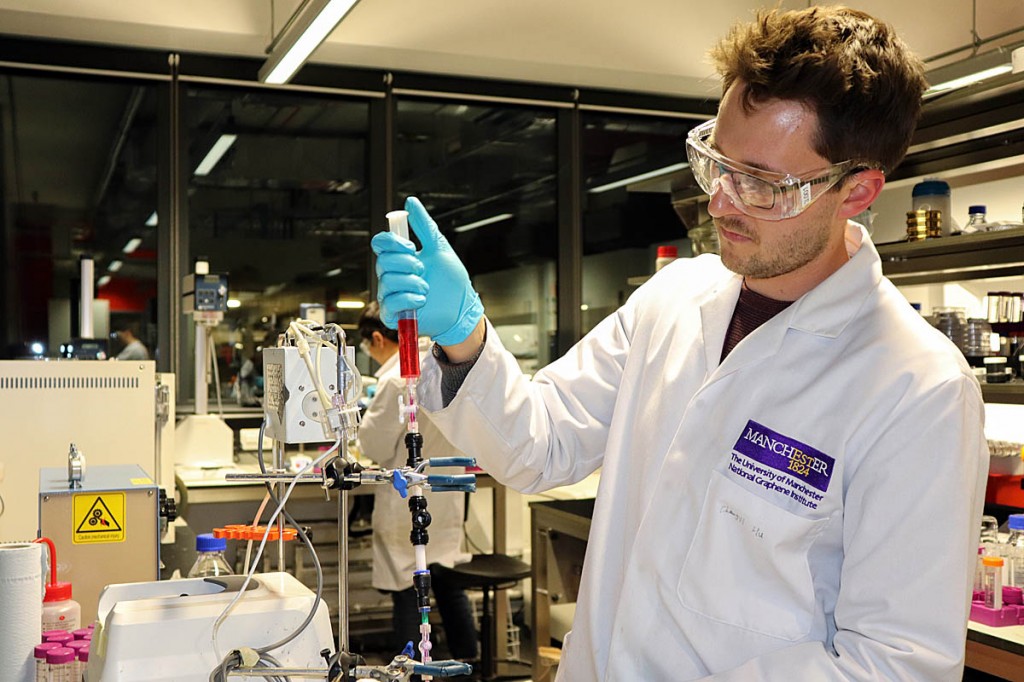Water filter manufacturer LifeSaver has teamed up with scientists at the University of Manchester to research the uses of graphene in providing clean water.
The company has signed up to an exclusive 18-month partnership with the National Graphene Institute.
The research project will focus on developing graphene technology that can be used for enhanced water filtration, with the goal of creating a patented product capable of eliminating an even wider range of hazardous contaminants than currently removed by LifeSaver’s existing high-performance filtration process.
Graphene was developed by two scientists at the university and has emerged as a wonder material in recent years. It is an ultra-thin form of carbon, only one atom thick. Considered the first two-dimensional material ever discovered, it is also one of the strongest known natural materials in the world, while retaining high levels of flexibility, conductivity and filtration.
LifeSaver said that, by incorporating graphene into its existing water purification technology, it hopes to reduce the sieve size of its hollow-fibre filtration membrane from the current 15 nanometres, which removes bacteria, microbial cysts and viruses, to about 1-3 nanometres.
A nanometre is one billionth of a metre. At that size, LifeSaver said its products could remove a much wider range of contaminants, such as heavy metals, pesticides, certain chemicals and potentially even nuclear particles from drinking water supplies.
The company’s chairman Chris Marsden said: “The partnership with NGI excites all of us at LifeSaver as it provides a potential game-changing opportunity in our patented technology platform.
“This in turn allows us to continue to provide leading edge technological solutions to our key global humanitarian, military and retail markets.”
LifeSaver first approached the NGI in 2017 with a view to forming a partnership to apply graphene to water filtration.
Professor Rahul Nair, who will lead the project at the University of Manchester, said: “Making a graphene-based portable water filter was our dream, and this collaboration with LifeSaver will enable that dream to be a reality sooner than later.
“The University of Manchester is the world-leading centre for graphene membrane development, and LifeSaver has the expertise in making a portable water filter.
“This is a great example of a collaborative project where we are trying to combine two independently developed technologies into one, to enhance the quality and availability of drinking water for those who need it most.”
LifeSaver was founded in the UK in 2007, following back-to-back natural disasters: the Indian Ocean tsunami and Hurricane Katrina, to address the resulting need for access to clean drinking water. The first prototype was developed and became the world’s first portable water filter capable of removing the smallest known waterborne viruses. Since that time, LifeSaver has continued manufacturing filtration systems in the humanitarian and military sectors, as well as for outdoor enthusiasts.
